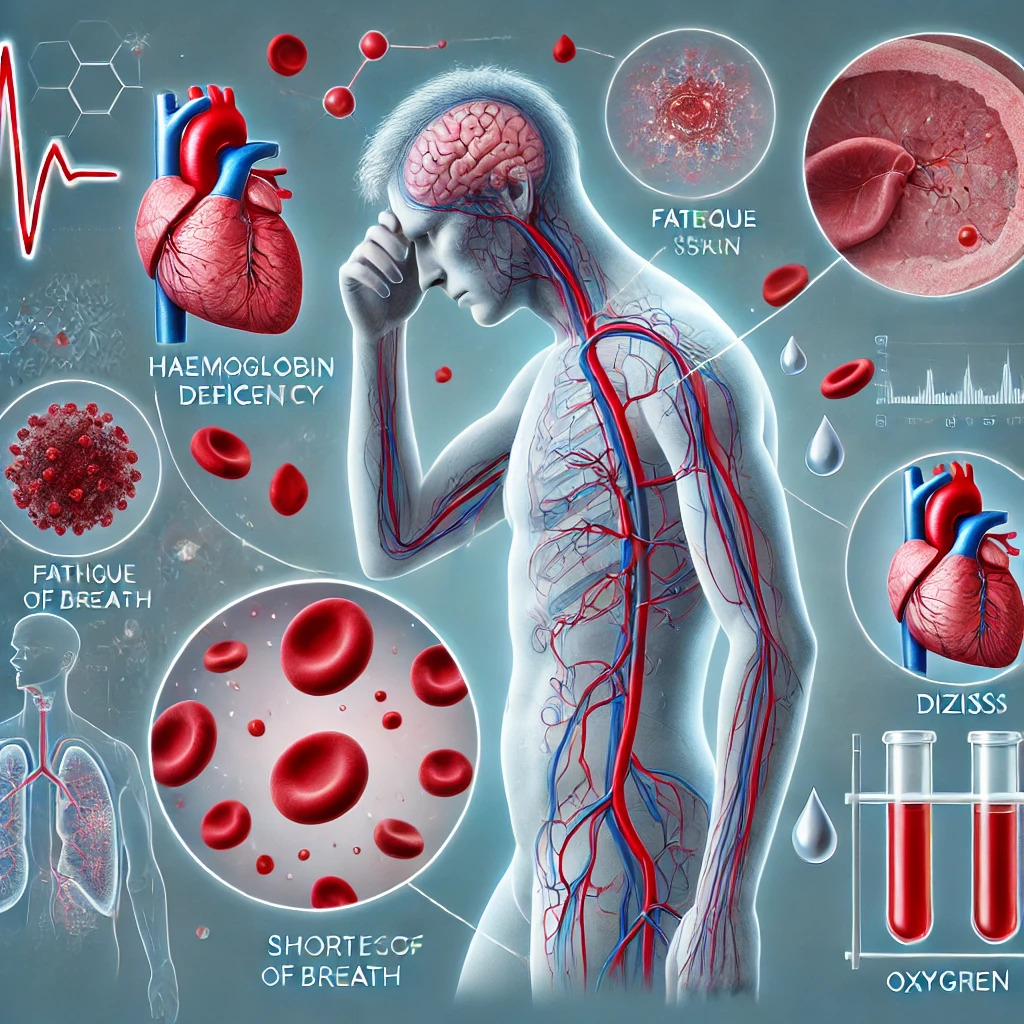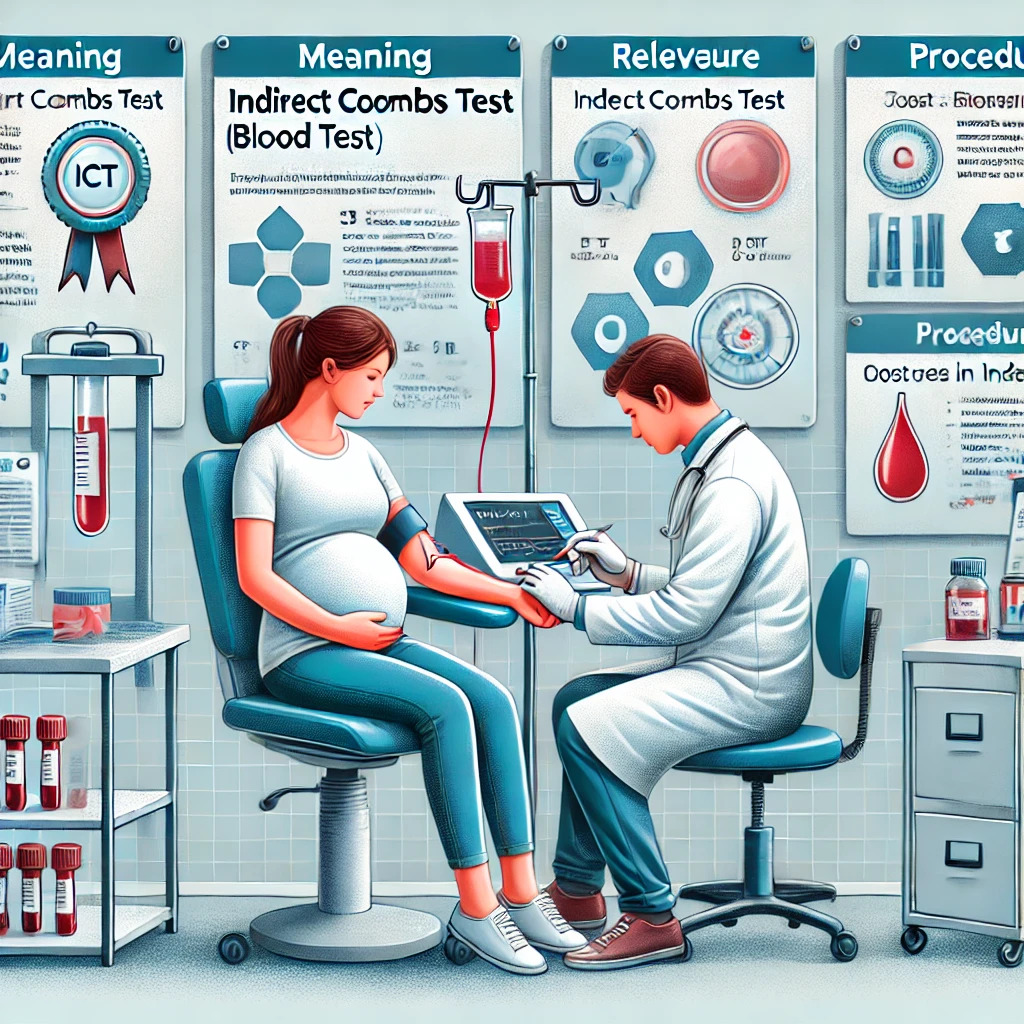Difference Between SGPT and SGOT: Enzyme, Function And Test Procedure
.jpg)
Both SGOT and SGPT are two of the enzymes produced by the liver and are normally contained within the liver cells.
The liver is a multifaceted organ in the human body resembling a reddish brown wedge which silently and efficiently handles several vital functions. Some of the functions which our liver orchestrates include synthesising essential proteins, production of bile which helps to digest fats, metabolising different drugs, removing various toxins, and many more. The liver plays a central role in the human body to maintain well-being, and liver function tests can reflect on our inner health.
To understand the difference between SGOT and SGPT and their role in human health, we need first to understand what these two enzymes are, where they are found, how they are measured, and how their values are interpreted. This blog sheds light on these things and simplifies the medical terms related to these enzymes.
Also Read: - SGPT And SGOT Levels In Jaundice
What are SGPT and SGOT?
SGPT (Serum glutamic pyruvic transaminase) and SGOT (Serum glutamic oxaloacetic transaminase) are two important liver enzymes which are measured as a part of Liver Function Tests. SGPT is known by another name, ALT (alanine aminotransferase), while SGOT is also known as AST(aspartate aminotransferase), and these enzymes are found within the cells.
When there is an injury to the cells which have these enzymes, or there is inflammation, these enzymes leak out from the injured cells. This is why the liver function test is so important because it measures the levels of these two enzymes along with certain other parameters. If the levels of these enzymes are higher than normal, it indicates an injury or inflammation.
Although these two enzymes are tested together, there may be some differences between SGOT and SGPT based on their locations, specificity to the liver, and their functions. As we know, enzymes are proteins, and each enzyme has a specific function. SGOT and SGPT are important for optimal liver function and are present within normal ranges when the liver is healthy. These two enzymes are important biomarkers for liver health, which can be tested with a simple blood test, which can even be done at home.
Function and Location of SGOT and SGPT
Both of these enzymes fall into the category of aminotransferase enzymes. These enzymes catalyse chemical reactions in which an amino acid is transferred from a donor molecule to the recipient molecule. This is how these enzymes get the name 'aminotransferase'. Amino acids are the building blocks of proteins, and these enzymes play a role in amino acid metabolism. Let us understand how SGPT differs from SGOT and what are the common links.
SGPT (ALT) is primarily found in the liver cells. SGPT plays an important role in amino acid metabolism, especially in converting amino acid alanine to pyruvate. Pyruvate is an essential intermediate molecule in the process of cellular energy production. In simple language, SGPT plays an important role in energy production at the cellular level. As this enzyme is mainly concentrated within the liver cells, its elevated levels are indicative of liver damage or inflammation.
SGOT (AST) is found in different tissues in the body which include the liver, heart, muscles, kidneys, and even the brain. SGOT is a catalyst in the transfer of amino groups between the amino acids which is an essential step in various cellular processes. This enzyme may be elevated in liver damage, but it can also be elevated in injury or inflammation of the other organs in which it is found, like the heart, muscles, and kidneys. It is a less specific marker of liver health in comparison to SGPT.
Also Read: - Best Medicines for high sgpt or sgot
Differences Between SGPT and SGOT
These two enzymes are mainly used to assess liver health, and there are some differences based on certain factors, which are explained below:
Enzyme Location
- SGPT (ALT) is primarily found in the liver cells, which is why it is a more specific indicator of liver function. This is an indicator of liver health even when it is elevated alone.
- SGOT (AST): is found in the liver and other organs like the heart, muscles, kidneys, and brain. It is a less specific indicator of liver injury. It is an indicator of liver health when it is elevated along with other liver enzymes like SGPT and GGT. When elevated alone, it may indicate problems with other organs.
Function
- SGPT is involved in liver-specific amino acid metabolism, where it plays a role in energy production at the cellular level.
- SGOT plays a more general role in cellular processes as it is found in many organs. It facilitates amino acid transfer in various tissues, including the liver, heart, and muscles.
Sensitivity to liver damage
- SGPT: because the enzyme is mainly located in the liver, it is a more specific indicator of liver function.
- SGOT: because the enzyme is located in other organs besides the liver, it is less specific to liver damage.
Reasons for higher than normal levels
- SGOT: can increase due to liver disease, heart disease or injury, muscle injury, pancreatitis, kidney disease.
- SGPT: increases due to liver-related issues.
Additional considerations and differences between SGPT and SGOT
- The normal range for SGPT is between 7-56 units per litre of serum.
- The normal range for SGOT is between 5-40 units per litre of serum.
- Liver health and damage can be ascertained based on the degree of elevation of these enzymes, other liver enzymes, symptoms and other parameters. Only a healthcare professional can make a correct diagnosis.
Test procedure for measuring SGOT and SGPT
A liver function test, which also measures these two enzymes, requires overnight fasting. It is important to stay hydrated. You should follow your doctor's instructions and also inform the doctor about the medicines and supplements you are on. Your doctor will tell you if any adjustments are needed, and you should never stop taking medicine on your own. It would help if you tried not to overexert or perform intense exercises before the test.
Measuring SGOT and SGPT involves a simple blood test where a blood sample is drawn from a vein in your arm. There is no difference between SGOT and SGPT in the way they are tested, as the same sample is used to test both these enzymes and for other liver tests.
Preventive Measures for Normal SGOT and SGPT Levels
A holistic approach that targets a balanced diet, optimum physical activity, managing stress, sleeping well, and avoiding substances which can be toxic to the liver is essential in protecting the liver from damage.
These are some of the things you can do to protect your liver and maintain normal enzyme levels:
- Aim for a healthy weight for your age and height: One of the major liver issues these days is Non-alcoholic fatty liver disease, for which obesity is a major cause. This condition can progress to serious liver damage. You should know if you have excess visceral fat, which is fat around your organs, as some people may have normal weight but have visceral fat. Regular exercises which are safe for you, a balanced diet, and a proper sleep routine can help with weight management.
- A balanced diet rich in micronutrients: a well-balanced diet is the cornerstone of weight management. Diet may be more important than exercise in losing excess weight. General guidelines include consuming whole foods, fresh fruits and vegetables, lean proteins, and healthy fats like nuts and seeds in moderation. You must avoid processed foods, excessive sugar intake, and unhealthy fats as they stress the liver directly apart from increasing weight. Take the help of a dietician for an individualised approach.
- Restricting alcohol: this is important because when the liver metabolises alcohol, the byproducts are toxic to the liver. Excessive alcohol intake over months and years can cause inflammation and cell injury in the liver. Alcohol intake also affects how carbohydrates are processed.
- Avoid substances toxic to the liver: some medicines may be hepatotoxic, especially in higher doses over prolonged periods and in combination with other medicines and supplements. This is why you should never self-medicate. A doctor can weigh the pros and cons while adjusting your medicines to prevent side effects.
- Avoiding tobacco: smoking or chewing tobacco also exposes the body to certain toxins that can also damage your liver. It would help if you tried to quit smoking and chewing tobacco.
- Vaccinations can be helpful for conditions like Hepatitis A and B, which are viral infections that can damage the liver.
- Manage your chronic health conditions: if you have any chronic health conditions or metabolic disorders, you need to manage them with lifestyle changes and without medicines prescribed by your doctor.
- Manage chronic stress: it is important to learn how to manage chronic stress and to sleep well avoiding frequent late nights. Stress and insomnia can contribute to metabolic disorders, which can further put stress on your liver.
- Regular health checkups are really important as your doctor can recognise early signs of liver problems and can advise various blood tests. Blood tests can show differences in SGOT and SGPT levels and elevations in the number, which can help your doctor find the underlying problems. Early detection can prevent liver damage.
What Happens If SGOT is Higher Than SGPT?
In healthy individuals, SGOT and SGPT are usually within normal ranges. Slight variations may occur due to different factors, including the testing methods used by a laboratory.
SGOT and SGPT ratios are pivotal for the diagnosis of different liver disorders. A higher or lower ratio can be indicative of different etiologies. This ratio is an important diagnostic tool and is often used to understand the underlying cause of liver-related issues.
The 'SGOT SGPT ratio' is significantly increased in patients with alcoholic liver disease and cirrhosis. The ratio is above 2 for a majority of these patients.
In most patients with postnecrotic hepatitis, the ratio is usually higher than one but less than 2.
Patients with obstructive jaundice and viral hepatitis will have a lower ratio below one in most cases.
There may be exceptions where the SGOT SGPT ratio may not be so high or low.
It is also important to measure the level of GGT, another liver enzyme, in patients with alcoholic liver disease, as it is a more sensitive marker.
Do elevated levels of SGOT and SGPT always indicate liver damage?
Mild to moderate increase in levels of SGOT and SGPT may sometimes be normal or seen with fatty liver disease. Obesity can also lead to elevated levels. The liver may function normally, as these enzymes are not the only indicators of liver damage.
In some acute conditions like viral hepatitis, the enzymes may be elevated significantly. Still, they will return to normal for most people without any liver damage after the condition is resolved.
In some chronic liver conditions, there may be only mild elevations in these enzymes.
It is important to consult a doctor because many other factors and parameters are involved. The level of elevation, levels of other enzymes, bilirubin, platelet count, changes in ultrasound, signs and symptoms a person is having, and other tests offer important clues to liver health. These are all required for a proper diagnosis.
Conclusion
Both SGOT (AST) and SGPT (ALT) are important liver enzymes involved in amino acid metabolism and share some symptoms. The same blood test measures the levels of both these enzymes, but there may be some differences in SGPT and SGOT based on location, levels, and symptoms. When both or one of these enzymes are raised, it is important to see a doctor.
Regular health checkups can detect changes in liver function, and an early diagnosis can be life-saving as it can prevent liver damage.
At O-Lab in Jammu, we offer comprehensive packages which include liver function tests. You can also get yourself only a liver function test. Other tests which may be needed for assessing liver health like platelet count, coagulation panel, blood sugar, etc, are also available. We offer the best services, including accurate reporting, competitive prices, home sample collection or walk-in, quick reporting time, and free consultations with some packages. Reach out to us for all your queries.





